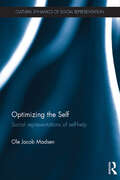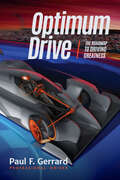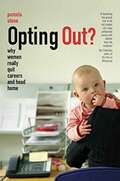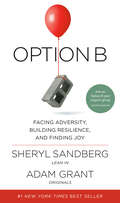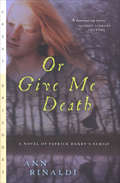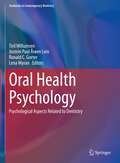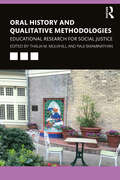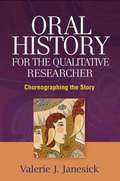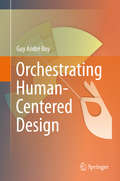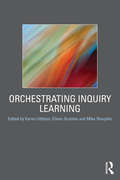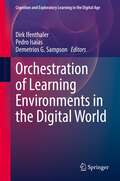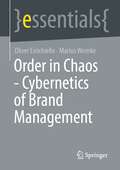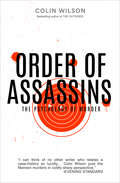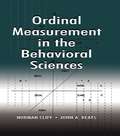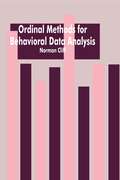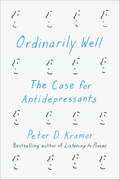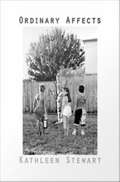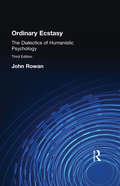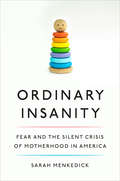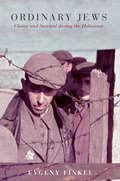- Table View
- List View
Optimizing the Self: Social representations of self-help (Cultural Dynamics of Social Representation)
by Ole Jacob MadsenThis book provides an analysis of the social representations of leading self-help genres, including neurolinguistic programming, cognitive self-help therapy, mindfulness, self-management, self-esteem, self-leadership and self-control. Exploring the globalised therapeutic culture of today, the book argues that psychology as ‘science’ is often abandoned to aid the individual pursuit for self-realization and self-optimization. Opposing the view that self-help culture is external to psychology, Madsen argues that it is firmly embedded within psychology, playing an important role in people’s lives. Each chapter traces and critically interprets a range of self-help philosophies and techniques, examining the claims of self-help literature to represent the most innovative psychological, medical or neurobiological research. Discussing each genre in turn, chapters examine key research alongside self-help literature to explore the effectiveness and impact of leading self-help genres in various social contexts and environments. The book offers a contemporary critical overview of issues concerning self-help, combining critical psychology with the theory of social representation to provide a broad perspective on self-help as a valid psychology. Optimizing the Self will be of interest to academics, researchers and postgraduate students in the fields of social representation, critical and cultural psychology and theory, clinical psychology, and the sociology of culture and science. The book will also be of use to critical and cultural psychologists and theorists, as well as clinical psychologists.
Optimum Drive: The Road Map to Driving Greatness
by Paul F. GerrardDon't Just Be Good - You Can Be Great!Optimum Drive is the complete step-by-step guide to maximizing human performance in any endeavor you choose to conquerAttaining peak performance. Optimum Drive is a motivational book that uses top level race car driving as a metaphor for peak performance. As a professional racing driver and a driving coach for over 20 years, author Paul F. Gerrard gives you his unique perspective on what causes people to stagnate with the idea of being merely good, when each of us has the potential to be great. Gerrard believes that peak performance is within our grasp. He lays out his step-by-step process for attaining peak performance with detailed nuance threaded throughout. If you have ever been curious about maximizing your own ultimate potential, Optimum Drive is for you!Mental toughness. Greatness is as hard to quantify as it is to achieve…probably not a coincidence. In this book, Optimum Drive, professional driver Gerrard helps you understand the mental toughness that it takes to reach that greatness. He starts off by taking you onto the track as he explores what driving at 200 mph can teach us about who we are. Using his experiences from behind the wheel at death-defying speeds, Gerrard breaks down the psychology of driving, what it takes, and how we can use it to achieve greatness in life.Flow psychology and staying in the zone. The key to the mental toughness that Gerrard believes it takes to achieve peak performance is the nirvana-like sensation of flow psychology or being in the zone. Flow psychology, or being in the zone, is a mental state in which one who is performing an activity is fully immersed in a feeling of energized focus, full involvement, and joy. It is through flow psychology that Gerrard introduces a blend of holistic mindset combined with a competitive edge, which is essential to successful professional driving. This mix of guts, tenacity and endurance is the foundation of Gerrard’s philosophy for attaining greatness.Why you should read Optimum DriveThis book is not just about learning how to drive race cars. Use it for anything.Auto Racing (by far the richest sport in the world) has invested more money evaluating human performance than any other sport.Optimum Drive is a step-by-step guide to unlock your hidden potential.Former Top Gear US Stig, Paul F. Gerrard has taught and refined his principles for over 20 years with thousands of successful students.
Opting Out?: Why Women Really Quit Careers And Head Home
by Pamela StoneNoting a phenomenon that might seem to recall a previous era, The New York Times Magazine recently portrayed women who leave their careers in order to become full-time mothers as “opting out.” But, are high-achieving professional women really choosing to abandon their careers in order to return home? This provocative study is the first to tackle this issue from the perspective of the women themselves. Based on a series of candid, in-depth interviews with women who returned home after working as doctors, lawyers, bankers, scientists, and other professions, Pamela Stone explores the role that their husbands, children, and coworkers play in their decision; how women’s efforts to construct new lives and new identities unfold once they are home; and where their aspirations and plans for the future lie. What we learn―contrary to many media perceptions―is that these high-flying women are not opting out but are instead being pushed out of the workplace. Drawing on their experiences, Stone outlines concrete ideas for redesigning workplaces to make it easier for women―and men―to attain their goal of living rewarding lives that combine both families and careers.
Option B: Facing Adversity, Building Resilience, and Finding Joy
by Sheryl Sandberg Adam Grant<P>From Facebook’s COO and Wharton’s top-rated professor, the #1 New York Times best-selling authors of Lean In and Originals: a powerful, inspiring, and practical book about building resilience and moving forward after life’s inevitable setbacks. <P>After the sudden death of her husband, Sheryl Sandberg felt certain that she and her children would never feel pure joy again. “I was in ‘the void,’” she writes, “a vast emptiness that fills your heart and lungs and restricts your ability to think or even breathe.” Her friend Adam Grant, a psychologist at Wharton, told her there are concrete steps people can take to recover and rebound from life-shattering experiences. We are not born with a fixed amount of resilience. It is a muscle that everyone can build. <P>Option B combines Sheryl’s personal insights with Adam’s eye-opening research on finding strength in the face of adversity. Beginning with the gut-wrenching moment when she finds her husband, Dave Goldberg, collapsed on a gym floor, Sheryl opens up her heart—and her journal—to describe the acute grief and isolation she felt in the wake of his death. <P>But Option B goes beyond Sheryl’s loss to explore how a broad range of people have overcome hardships including illness, job loss, sexual assault, natural disasters, and the violence of war. Their stories reveal the capacity of the human spirit to persevere . . . and to rediscover joy. Resilience comes from deep within us and from support outside us. <P>Even after the most devastating events, it is possible to grow by finding deeper meaning and gaining greater appreciation in our lives. Option B illuminates how to help others in crisis, develop compassion for ourselves, raise strong children, and create resilient families, communities, and workplaces. <P>Many of these lessons can be applied to everyday struggles, allowing us to brave whatever lies ahead. Two weeks after losing her husband, Sheryl was preparing for a father-child activity. “I want Dave,” she cried. Her friend replied, “Option A is not available,” and then promised to help her make the most of Option B. We all live some form of Option B. This book will help us all make the most of it. <P><b>A New York Times Bestseller</b>
Optogenetics: Light-Sensing Proteins and Their Applications in Neuroscience and Beyond (Advances in Experimental Medicine and Biology #1293)
by Ryoichiro Kageyama Hiromu Yawo Hideki Kandori Amane KoizumiThis book, now in a thoroughly revised second edition, offers a comprehensive review of the rapidly growing field of optogenetics, in which light-sensing proteins are genetically engineered into cells in order to acquire information on cellular physiology in optical form or to enable control of specific network in the brain upon activation by light. Light-sensing proteins of various living organisms are now available to be exogenously expressed in neurons and other target cells both in vivo and in vitro. Cellular functions can thus be manipulated or probed by light. The new edition documents fully the extensive progress since publication of the first edition to provide an up-to-date overview of the physical, chemical, and biological properties of light-sensing proteins and their application in biological systems, particularly in neuroscience but also in medicine and the optical sciences. Underlying principles are explained and detailed information provided on a wide range of optogenetic tools for the observation and control of cellular signaling and physiology, gene targeting technologies, and optical methods for biological applications. In presenting the current status of optogenetics and emerging directions, this milestone publication will be a “must read” for all involved in research in any way related to optogenetics.
Or Give Me Death: A Novel of Patrick Henry's Family (Great Episodes)
by Ann RinaldiA surprising Revolutionary War tale of a family beset by a mother&’s mental illness: &“Often gripping…the portrayal of Patrick Henry is unusually complex.&”—Publishers Weekly Patrick Henry, the famous statesman of the American Revolution, has a secret: He keeps his wife in the cellar. It&’s the only alternative to an asylum, for, slowly losing her mind, Sarah Henry has become a serious danger to herself and her children. Narrated by the Henrys&’ two daughters, Patsy and Anne, who must take on new responsibilities, this compassionate novel explores the possibility that Patrick Henry&’s immortal cry of &“Give me liberty or give me death&” may have first been spoken by his wife as she pled for her freedom—and &“delivers another intriguing spin on history&” from the popular author of young adult fiction (Kirkus Reviews). Includes a reader's guide
Oral Health Psychology: Psychological Aspects Related to Dentistry (Textbooks in Contemporary Dentistry)
by Tiril Willumsen Jostein Paul Årøen Lein Ronald C. Gorter Lena MyranThis textbook is exceptional in its coverage of modern theories on the patient-centered approach to communication, preventive dentistry, and dental anxiety. It provides the knowledge and tools required in order to implement a trauma-sensitive approach that will enhance the treatment experience for both the patient and the dental practitioner. General psychological aspects of dentistry and behavior management in patients who experience dental fear, anxiety, and pain are considered in detail. Extensive attention is devoted to the effective delivery of preventive care and dental treatment in a wide range of specific patient groups, including fearful and abused children and patients suffering from depression, personality disorders, psychosis, substance abuse disorders, and eating disorders. The importance of interdisciplinary cooperation and self-care in the dental clinic is also discussed. The book is an international collaborative effort between dentists and psychologists who draw on scientific research as well as their personal experiences in clinical practice. It is an excellent educational resource and will help readers to solve challenges in their own clinical settings.
Oral History and Public Memories
by Hamilton Linda Paula ShopesOral history is inherently about memory, and when oral history interviews are used "in public," they invariably both reflect and shape public memories of the past. Oral History and Public Memories is the only book that explores this relationship, in fourteen case studies of oral history's use in a variety of venues and media around the world. Readers will learn, for example, of oral history based efforts to reclaim community memory in post-apartheid Cape Town, South Africa; of the role of personal testimony in changing public understanding of Japanese American history in the American West; of oral history's value in mapping heritage sites important to Australia's Aboriginal population; and of the way an oral history project with homeless people in Cleveland, Ohio became a tool for popular education. Taken together, these original essays link the well established practice of oral history to the burgeoning field of memory studies.
Oral History and Qualitative Methodologies: Educational Research for Social Justice
by Raji Swaminathan Thalia M. MulvihillOral History and Qualitative Methodologies: Educational Research for Social Justice examines oral history methodological processes involved in the doing of oral history as well as the theoretical, historical, and knowledge implications of using oral history for social justice projects. Oral history in qualitative research is an umbrella term that integrates history, life history, and testimony accounts. Oral history draws from various social science disciplines, including educational studies, history, indigenous studies, sociology, anthropology, ethnic studies, women’s studies, and youth studies. The book argues for the further development of a pedagogical culture related to oral history for educational research as part of the effort to diversify the range of human experiences educators, community members, and policy makers incorporate into knowledge-making and knowledge-using processes. Early career researchers, novice researchers, as well as experienced researchers are invited to join social science educational researchers in developing their own oral history projects using all of the tools, dispositions, and epistemologies affiliated with qualitative inquiry. The book will be of use in courses on qualitative research methods, history, anthropology, women’s studies, and education disciplines as well as by community organizations who want to use oral history to preserve the history of communities and advance social justice projects.
Oral History for the Qualitative Researcher
by Ruthellen Josselson Valerie JanesickOral history is a particularly useful way to capture ordinary people's lived experiences. This innovative book introduces the full array of oral history research methods and invites students and qualitative researchers to try them out in their own work. Using choreography as an organizing metaphor, the author presents creative strategies for collecting, representing, analyzing, and interpreting oral history data. Instructive exercises and activities help readers develop specific skills, such as nonparticipant observation, interviewing, and writing, with a special section on creating found data poems from interview transcripts. Also covered are uses of journals, court transcripts, and other documents; Internet resources, such as social networking sites; and photography and video. Emphasizing a social justice perspective, the book includes excerpts of oral histories from 9/11 and Hurricane Katrina, among other detailed case examples.
Orchestrating Human-Centered Design
by Guy BoyThe time has come to move into a more humanistic approach of technology and to understand where our world is moving to in the early twenty-first century. The design and development of our future products needs to be orchestrated, whether they be conceptual, technical or organizational. Orchestrating Human-Centered Design presents an Orchestra model that attempts to articulate technology, organizations and people. Human-centered design (HCD) should not be limited to local/short-term/linear engineering, but actively focus on global/long-term/non-linear design, and constantly identify emergent properties from the use of artifacts. Orchestrating Human-Centered Design results from incremental syntheses of courses the author has given at the Florida Institute of Technology in the HCD PhD program. It is focused on technological and philosophical concepts that high-level managers, technicians and all those interested in the design of artifacts should consider. Our growing software -intensive world imposes better knowledge on cognitive engineering, life-critical systems, complexity analysis, organizational design and management, modeling and simulation, and advanced interaction media, and this well-constructed and informative book provides a road map for this.
Orchestrating Inquiry Learning
by Mike Sharples Karen Littleton Eileen ScanlonThere is currently a rapidly growing interest in inquiry learning and an emerging consensus among researchers that, particularly when supported by technology, it can be a significant vehicle for developing higher order thinking skills. Inquiry learning methods also offer learners meaningful and productive approaches to the development of their knowledge of the world, yet such methods can present significant challenges for teachers and students. Orchestrating Inquiry Learning addresses the key challenge of how to resource and support processes of inquiry learning within and beyond the classroom. It argues that technological support, when coupled with appropriate design of activities and management of the learning environment, can enable inquiry learning experiences that are engaging, authentic and personally relevant. This edited collection of carefully integrated chapters brings together, for the first time; work on inquiry learning and orchestration of learning. Drawing upon a broad range of theoretical perspectives, this book examines: Orchestration of inquiry learning and instruction Trajectories of inquiry learning Designing for inquiry learning Scripting personal inquiry Collaborative and collective inquiry learning Assessment of inquiry learning Inquiry learning in formal and semi-formal educational contexts Orchestrating Inquiry Learning is essential reading for all those concerned with understanding and promoting effective inquiry learning. The book is aimed at an international audience of researchers, post-graduate students, and advanced undergraduates in education, educational technology and psychology. It will also be of interest to educational practitioners and policy makers, including teachers, educational advisors, teacher-students and their trainers.
Orchestration of Learning Environments in the Digital World (Cognition and Exploratory Learning in the Digital Age)
by Dirk Ifenthaler Demetrios G. Sampson Pedro IsaíasThis volume focuses on the implications of digital technologies for educators and educational decision makers that are not widely represented in the literature. The chapters contained in the volume are based on the presentations at the 2020 edition of the CELDA conference and cover multiple developments in the field such as deploying learning technologies, proposing pedagogical approaches and practices to address digital transformation, and presenting case studies of specific technologies and contexts. The chapters form a lively debate and provide a comprehensive analysis of the contribution of learning technologies designed to improve the learning process and the experience of the students as well as to develop key competences.
Ordeal Therapy: Unusual Ways To Change Behavior
by Jay HaleyNoted therapist Jay Haley reveals how ordeals work in therapy and offers numerous case histories to illustrate how ordeals can help individuals, couples, and families solve a wide range of problems, even in cases with a history of therapeutic failure.
Order Without Law
by Robert C. EllicksonIn Order without Law Robert C. Ellickson shows that law is far less important than is generally thought. He demonstrates that people largely govern themselves by means of informal rules-social norms-that develop without the aid of a state or other central coordinator. Integrating the latest scholarship in law, economics, sociology, game theory, and anthropology, Ellickson investigates the uncharted world within which order is successfully achieved without law. The springboard for Ellickson's theory of norms is his close investigation of a variety of disputes arising from the damage created by escaped cattle in Shasta County, California. In "The Problem of Social Cost" --the most frequently cited article on law--economist Ronald H. Cease depicts farmers and ranchers as bargaining in the shadow of the law while resolving cattle-trespass disputes. Ellickson's field study of this problem refutes many of the behavioral assumptions that underlie Coase's vision, and will add realism to future efforts to apply economic analysis to law. Drawing examples from a wide variety of social contexts, including whaling grounds, photocopying centers, and landlord-tenant relations, Ellickson explores the interaction between informal and legal rules and the usual domains in which these competing systems are employed. Order without Law firmly grounds its analysis in real-world events, while building a broad theory of how people cooperate to mutual advantage.
Order in Chaos - Cybernetics of Brand Management (essentials)
by Oliver Errichiello Marius WernkeCybernetics is a science for understanding and systematically using information. As a subject of cybernetics, the brand is becoming increasingly important, especially in times of acceleration and infinite, global commodity markets. Only those who are able to preserve their patterns in the age of change and adapt them again and again to the requirements of the times will survive. Neither customer data nor creative ideas help here, but a sound knowledge of the structural functioning of all living beings - organic and social. By bringing together brand sociology and management cybernetics, this essential clarifies the invisible social forces of attraction. By illustrating the overarching dynamics of all (living) systems, universal insights can be gained and planned strategies developed.
Order of Assassins: The Psychology of Murder
by Colin WilsonAn examination of the motives for murder from the bestselling author of The Outsider—&“Colin Wilson puts the Manson murders in coldly sharp perspective&” (Evening Standard). Why is the &“motiveless&” murder an increasing phenomenon today? What is the mentality behind the Manson massacres and other shocking cases of brutal killing—too frequent to be written off as isolated cases? In his penetrating exploration of murder, Colin Wilson suggests that the apparently meaningless violence so frighteningly prevalent today is the result of boredom and frustration induced by a repressive society. Particular individuals of high creative potential are thwarted in their natural drives and ambitions and are forced to tread the deadly path of homicide. Colin Wilson traces this path, describing in detail many instances of violent crime, and provides valuable insights that may point to an explanation.
Order on the Edge of Chaos
by Edward J. LawlerOrder and stability are tenuous and fragile. People have to work to create and sustain a semblance of stability and order in their lives and in their organizations and larger communities. Order on the Edge of Chaos compares different ideas about how we coordinate and cooperate. The ideas come from 'micro-sociology', and they offer new answers to the classic question of Thomas Hobbes: 'how is social order possible?' The most common answers in sociology, political science, and economics assume a fundamental tension between individual and group interests. This volume reveals that social orders are problematic even without such tension, because when people interact with each other, they verify their identities, feel and respond to emotions, combine different goal frames, and develop shared responsibility. The ties of people to groups result from many aspects of their social interactions, and these cannot be explained by individual self-interest.
Ordinal Measurement in the Behavioral Sciences
by Norman Cliff John A. KeatsThis book provides an alternative method for measuring individual differences in psychological, educational, and other behavioral sciences studies. It is based on the assumptions of ordinal statistics as explained in Norman Cliff's 1996 Ordinal Methods for Behavioral Data Analysis. It provides the necessary background on ordinal measurement to permit its use to assess psychological and psychophysical tests and scales and interpret the data obtained. The authors believe that some of the behavioral measurement models used today do not fit the data or are inherently self-contradictory. Applications of these models can therefore lead to unwarranted inferences regarding the status of the derived variables. These methods can also be difficult to apply, particularly in small-sample contexts without making additional, unrealistic assumptions. Ordinal methods more closely reflect the original data, are simple to apply, and can be used in samples of any size. The book's approach is in essence a return to simple empiricism in psychological measurement. Ordinal Measurement in the Behavioral Sciences provides: *methods for analyzing test responses; *extensive discussions of ordinal approaches to analyzing data that are judgments of stimuli; *methods for treating psychological data in ways consistent with its ordinal nature so as to stimulate new developments in this area; and *ordinal test theory and the unfolding methods that are applicable to cross-cultural studies. Advanced students, researchers, and practitioners concerned with psychological measurement should find this book relevant. Measurement professionals will find it provides useful and simple methods that stimulate thought about measurement's real issues.
Ordinal Methods for Behavioral Data Analysis
by Norman CliffThis book was written with the belief that ordinal statistical methods--sometimes discussed under the title of "nonparametric statistics"--deserve much more serious attention as research tools than they have traditionally had. There are three classes of reasons for this: *Many behavioral variables constitute only ordinal scales, not interval measurements that are required for traditional statistics. *Various research issues that are of primary interest in behavioral research are themselves questions about order: Which group scores higher? Is the order on this variable similar to the order on that? *Inferences from ordinal statistics are less subject to distributional peculiarities of the data than are those from traditional statistics. Taking an innovative approach, this book treats ordinal methods in an integrated way rather than as a compendium of unrelated methods, and emphasizes that the ordinal quantities are highly meaningful in their own right, not just as stand-ins for more traditional correlations or analyses of variance. In fact, since the ordinal statistics have desirable descriptive properties of their own, the book treats them parametrically, rather then nonparametrically. The author discusses how ordinal statistics can be applied in a much wider set of research situations than has usually been thought, and that they can often come closer to answering the researcher's primary questions than traditional ones can. And he includes some extensions of ordinal methods in order to accomplish that end.
Ordinarily Well: The Case for Antidepressants
by Peter D. KramerDo antidepressants work, or are they glorified dummy pills? How can we tell?In Ordinarily Well, the celebrated psychiatrist and author Peter D. Kramer examines the growing controversy about the popular medications. A practicing doctor who trained as a psychotherapist and worked with pioneers in psychopharmacology, Kramer combines moving accounts of his patients’ dilemmas with an eye-opening history of drug research to cast antidepressants in a new light.Kramer homes in on the moment of clinical decision making: Prescribe or not? What evidence should doctors bring to bear? Using the wide range of reference that readers have come to expect in his books, he traces and critiques the growth of skepticism toward antidepressants. He examines industry-sponsored research, highlighting its shortcomings. He unpacks the “inside baseball” of psychiatry—statistics—and shows how findings can be skewed toward desired conclusions.Kramer never loses sight of patients. He writes with empathy about his clinical encounters over decades as he weighed treatments, analyzed trial results, and observed medications’ influence on his patients’ symptoms, behavior, careers, families, and quality of life. He updates his prior writing about the nature of depression as a destructive illness and the effect of antidepressants on traits like low self-worth. Crucially, he shows how antidepressants act in practice: less often as miracle cures than as useful, and welcome, tools for helping troubled people achieve an underrated goal—becoming ordinarily well.
Ordinary Affects
by Kathleen StewartOrdinary Affects is a singular argument for attention to the affective dimensions of everyday life and the potential that animates the ordinary. Known for her focus on the poetics and politics of language and landscape, the anthropologist Kathleen Stewart ponders how ordinary impacts create the subject as a capacity to affect and be affected. In a series of brief vignettes combining storytelling, close ethnographic detail, and critical analysis, Stewart relates the intensities and banalities of common experiences and strange encounters, half-spied scenes and the lingering resonance of passing events. While most of the instances rendered are from Stewart's own life, she writes in the third person in order to reflect on how intimate experiences of emotion, the body, other people, and time inextricably link us to the outside world. Stewart refrains from positing an overarching system--whether it's called globalization or neoliberalism or capitalism--to describe the ways that economic, political, and social forces shape individual lives. Instead, she begins with the disparate, fragmented, and seemingly inconsequential experiences of everyday life to bring attention to the ordinary as an integral site of cultural politics. Ordinary affect, she insists, is registered in its particularities, yet it connects people and creates common experiences that shape public feeling. Through this anecdotal history--one that poetically ponders the extremes of the ordinary and portrays the dense network of social and personal connections that constitute a life--Stewart asserts the necessity of attending to the fleeting and changeable aspects of existence in order to recognize the complex personal and social dynamics of the political world.
Ordinary Ecstasy: The Dialectics of Humanistic Psychology
by John RowanHumanistic Psychology ranges far and wide into education, management, gender issues and many other fields. Ordinary Ecstasy, first published in 1976, is widely regarded as one of the most important books on the subject. Although this new edition still contains much of the original material, it has been completely rethought in the light of postmodern ideas, with more emphasis on the paradoxes within humanistic psychology, and takes into account changes in many different areas, with a greatly extended bibliography.Ordinary Ecstasy is written not only for students and professionals involved in humanistic psychology - anyone who works with people in any way will find it valuable and interesting.
Ordinary Insanity: Fear and the Silent Crisis of Motherhood in America
by Sarah MenkedickA groundbreaking exposé and diagnosis of the silent epidemic of fear afflicting new mothers, and a candid, feminist deep dive into the culture, science, history, and psychology of contemporary motherhood Anxiety among mothers is a growing but largely unrecognized crisis. In the transition to motherhood and the years that follow, countless women suffer from overwhelming feelings of fear, grief, and obsession that do not fit neatly within the outmoded category of &“postpartum depression.&” These women soon discover that there is precious little support or time for their care, even as expectations about what mothers should do and be continue to rise. Many struggle to distinguish normal worry from crippling madness in a culture in which their anxiety is often ignored, normalized, or, most dangerously, seen as taboo. Drawing on extensive research, numerous interviews, and the raw particulars of her own experience with anxiety, writer and mother Sarah Menkedick gives us a comprehensive examination of the biology, psychology, history, and societal conditions surrounding the crushing and life-limiting fear that has become the norm for so many. Woven into the stories of women&’s lives is an examination of the factors—such as the changing structure of the maternal brain, the ethically problematic ways risk is construed during pregnancy, and the marginalization of motherhood as an identity—that explore how motherhood came to be an experience so dominated by anxiety, and how mothers might reclaim it. Writing with profound empathy, visceral honesty, and deep understanding, Menkedick makes clear how critically we need to expand our awareness of, compassion for, and care for women&’s lives.
Ordinary Jews: Choice and Survival during the Holocaust
by Evgeny FinkelFocusing on the choices and actions of Jews during the Holocaust, Ordinary Jews examines the different patterns of behavior of civilians targeted by mass violence. Relying on rich archival material and hundreds of survivors' testimonies, Evgeny Finkel presents a new framework for understanding the survival strategies in which Jews engaged: cooperation and collaboration, coping and compliance, evasion, and resistance. Finkel compares Jews' behavior in three Jewish ghettos—Minsk, Kraków, and Białystok—and shows that Jews' responses to Nazi genocide varied based on their experiences with prewar policies that either promoted or discouraged their integration into non-Jewish society. Finkel demonstrates that while possible survival strategies were the same for everyone, individuals' choices varied across and within communities. In more cohesive and robust Jewish communities, coping—confronting the danger and trying to survive without leaving—was more organized and successful, while collaboration with the Nazis and attempts to escape the ghetto were minimal. In more heterogeneous Jewish communities, collaboration with the Nazis was more pervasive, while coping was disorganized. In localities with a history of peaceful interethnic relations, evasion was more widespread than in places where interethnic relations were hostile. State repression before WWII, to which local communities were subject, determined the viability of anti-Nazi Jewish resistance.Exploring the critical influences shaping the decisions made by Jews in Nazi-occupied eastern Europe, Ordinary Jews sheds new light on the dynamics of collective violence and genocide.
